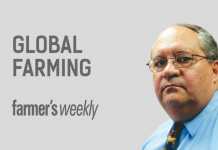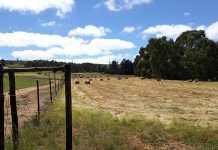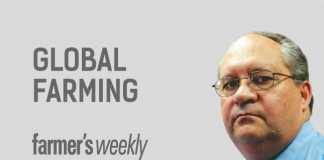At the time of writing, the outcome of the Greek financial crisis was still unsure. Its main effect, though, is that the euro, the world’s second most important currency, may implode. A weaker euro could seriously affect South African exports to the Eurozone. However, if the euro devalues, this may also lead to higher euro-based prices, thereby cancelling the negative effect to a certain extent.
Thus, while there’s a real danger of a weaker euro, it doesn’t necessarily imply a collapse of prices for export products.
Global economic growth recovered during 2011, but slowed down in the fourth quarter of the year. In the Eurozone, decreasing confidence and financial stress resulted in an annualised 1,3% decrease in economic growth in the fourth quarter of 2011.
The Japanese economy also shrank. In the US, both consumption and investment improved in the fourth quarter. The financial crisis impacted on economic growth in developed countries, while other factors resulted in slower growth in developing countries. In Asia and Latin America, trade slowed down mainly because of cyclical factors. Sub-Saharan Africa’s growth continued unabated. And the IMF still expects positive growth for the rest of 2012 and 2013, albeit at lower rates.

Table 1: Percentage growth
Risks
The financial crisis in ‘euro land’ isn’t the only source of uncertainty. Geopolitical risks are present in many regions, which may result in lower growth and push oil prices higher. While low to moderate growth is expected in developed countries, robust growth is still predicted for developing and emerging economies. The IMF’s growth projections for 2012 and 2013 are shown in Table 1. While the traditional markets in Europe and the US stagnate, those in developing countries show rapid growth.
Implications FOR farmers
Farmers can’t ignore the current global financial uncertainty. If the euro weakens, we may see depressed product prices on global markets, which means lower prices for SA, especially to developed countries. However, markets in developing countries are growing, and there’s little chance of local production increasing to such an extent that these countries will be able to supply these markets soon.
SA agriculture is well situated to supply the growing demand in sub-Saharan Africa. Markets here have been modernised in recent years. There’s little difference between shopping centres in Johannesburg, Nairobi and Windhoek, both in the type and quantity of products offered. Furthermore, the very successful maize exports of the 2011 crop have illustrated that lack of infrastructure is not a major limitation to exports. SA agriculture should take note of and develop these markets.
Manufacturers and retailers in the developed world have also ‘discovered’ the lucrative African market, and if we are slow we may find that these markets are already supplied by processors in the US and other countries when we finally wake up.
Dr Koos Coetzee is an agricultural economist at the MPO. All opinions expressed are his own and don’t reflect MPO policy.
Contact Dr Coetzee at [email protected]. Please state ‘Global farming’ in the subject line of your email.




